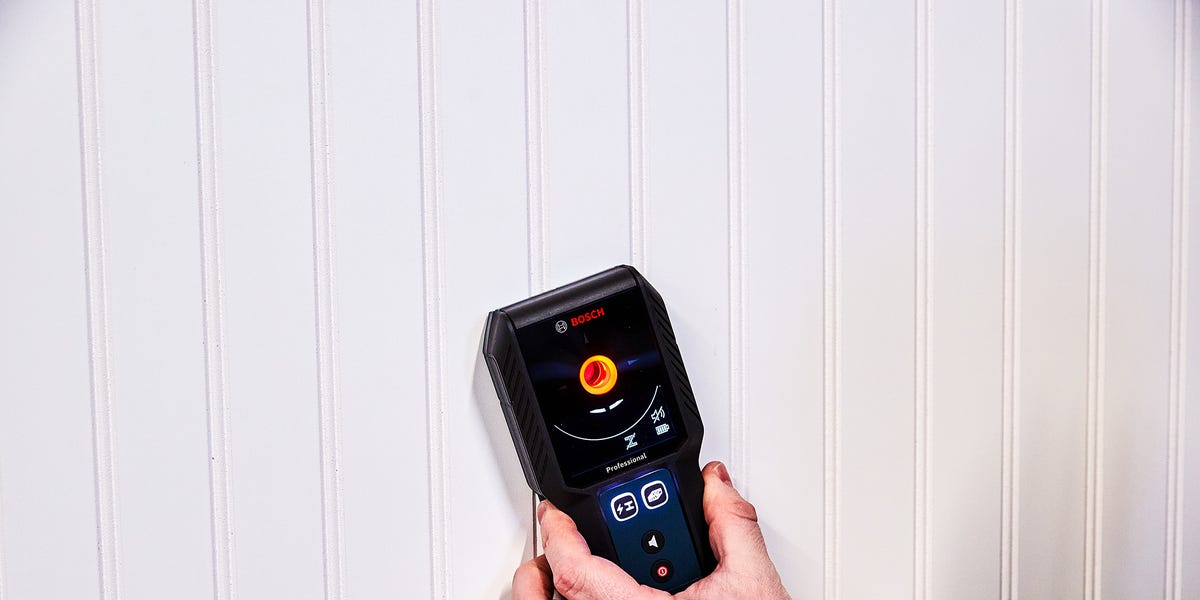Can a $12 Stud Finder Beat a $100 Model? We Tested Both.

Best Stud Finders for Every Need
If you're hanging or mounting heavy items on your walls, such as mirrors or flat-screen TVs, it's essential to attach them to a stud. These are the wooden or metal beams that make up your home’s framing. Since these studs are hidden behind drywall or plaster, a stud finder can save you time and prevent wall damage by ensuring you drill into the sturdy support every time.
Some stud finders come with additional tools like deep scanning and live wire detection. These features help avoid hitting pipes or wires, which can be costly mistakes. However, it's important to note that stud finders don’t work like X-ray vision. Walls contain many elements, and even with technological advances, no device can accurately distinguish between a pipe and a wire 100% of the time.
To determine the best stud finders, I conducted a comprehensive testing process on seven models. I evaluated their capabilities on different wall surfaces and home types, ultimately selecting the Bosch GMS120 Stud Finder as the top overall option.
Top Picks for Different Needs
Best Overall:
Bosch Wall Scanner and Stud Finder
Best Budget:
Craftsman Hi-Vis Stud Sensor
Best Magnetic:
CH Hanson Magnetic Stud Finder
Best for Drywall:
The StudBuddy Magnetic Stud Finder
Best Splurge:
Franklin Sensors ProSensor MAX Stud Finder
How We Selected the Best Models
My selection process was based on personal experience as a residential and commercial carpenter, where I frequently mounted large and load-bearing objects. This experience taught me that not all stud finders are equal, and some are better suited for specific tasks than others.
I also conducted extensive online research to ensure I didn't miss any popular or well-regarded models. Once I had a list of options, I tested each model in two different homes—one with modern drywall and the other with 100-year-old plaster and lathe. I evaluated how effectively each model located studs and detected other underlying items like wiring or plumbing.
During my testing, I also looked at how each model alerted me to its findings, whether through subtle indicators or more noticeable features like LEDs and audible alerts. I noted how gently each model treated the wall’s surface, considering factors like felt pads to protect paint.
Full Reviews
Bosch GMS120 Stud Finder
Priced at $93.87, this versatile model detects wooden wall studs, live AC wiring, and metal objects. It features an illuminated ring, multi-colored display, and audible tones to guide users toward their target. The large hole in the center of the display makes marking the center of the stud easy. It accurately located studs in both drywall and plaster homes, and its readings were verified with test nails.
Craftsman Hi-Vis Stud Sensor
At $11.88, this electric stud finder is lightweight and affordable. Its straightforward indicator light and audible tone worked well for locating wood studs in drywall. However, it wasn't reliable for non-drywall use due to false positives.
CH Hanson Magnetic Stud Finder
Priced at $12.50, this model uses two powerful magnets to locate studs. It includes a bubble level and rotates in both horizontal and vertical positions. Its compact size and durable build make it comfortable to handle and easy to carry.
StudBuddy Magnetic Stud Finder
For $9.97, this simple magnetic tool easily locates nails, screws, and metal studs. Its narrow design provides a clear picture of stud location, and it works well on metal studs. However, it struggles with plaster walls.
Franklin Sensors ProSensor MAX Stud Finder
At $119.00, this model offers superior usability and a comprehensive LED display. With 13 internal sensors and 35 LEDs, it provides precise information about objects behind walls. While it can't differentiate between materials, it's easy to use and effective for most applications.
What to Consider When Choosing a Stud Finder
Go Electric for Heavy Items
Electric stud finders are ideal for hanging heavy items like mirrors or smart TVs. They detect metal pipes and electrical wires, making the task safer and more reliable.
Plastic Models and Moisture
Most stud finders are made of plastic and are vulnerable to moisture and impact damage. If you plan to use an electric model in wet conditions, look for one with a robust IP rating.
Larger Models Offer More Functionality
Larger stud finders often provide more features, such as adjustable depth settings and the ability to detect different materials. These models are ideal if portability isn't a concern.
Consider Depth Detection
Some electronic stud finders offer multiple depth detection modes. This allows you to customize the sensor strength based on the wall type, conserving battery life and improving accuracy.
Post a Comment for "Can a $12 Stud Finder Beat a $100 Model? We Tested Both."
Post a Comment